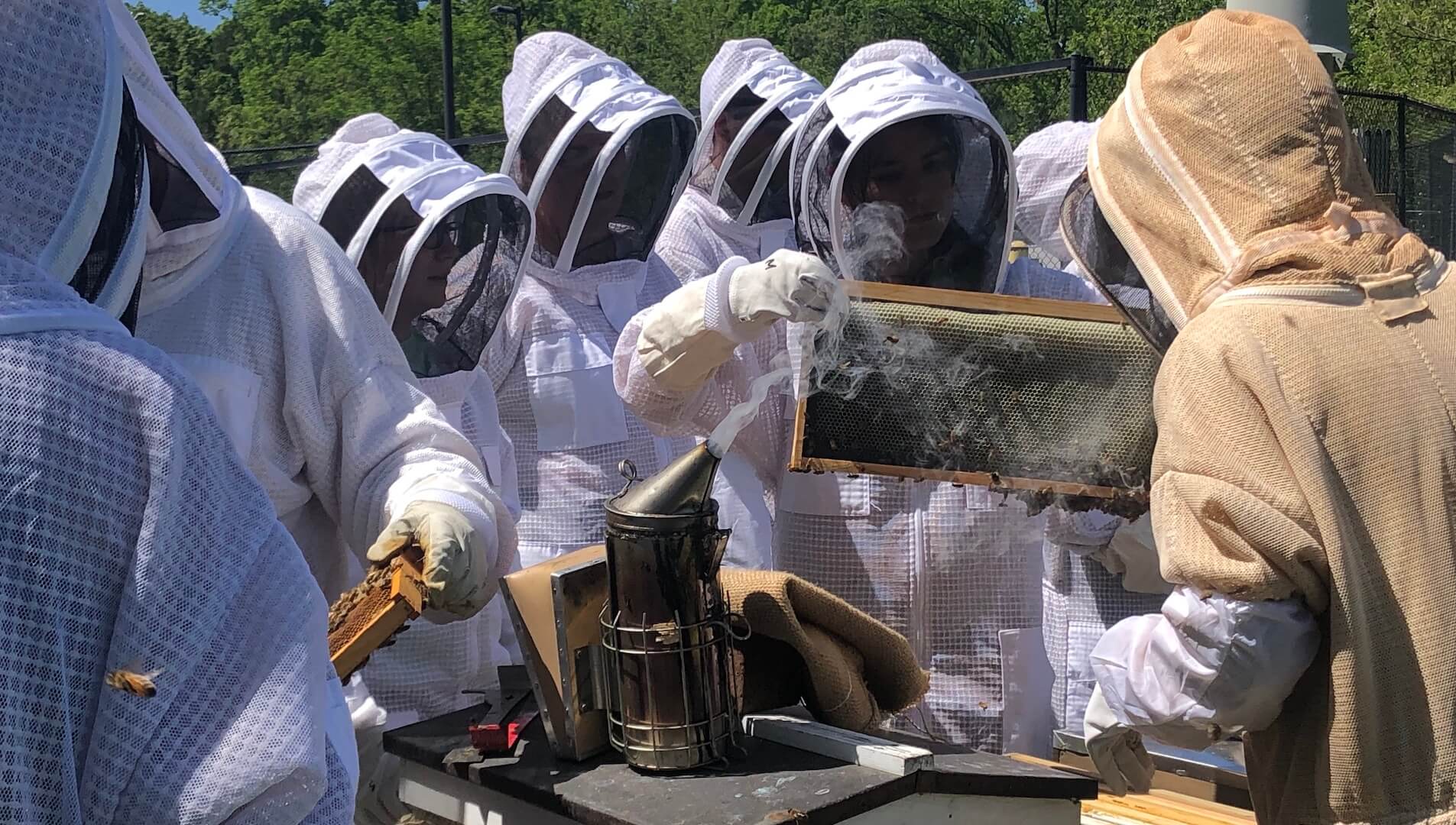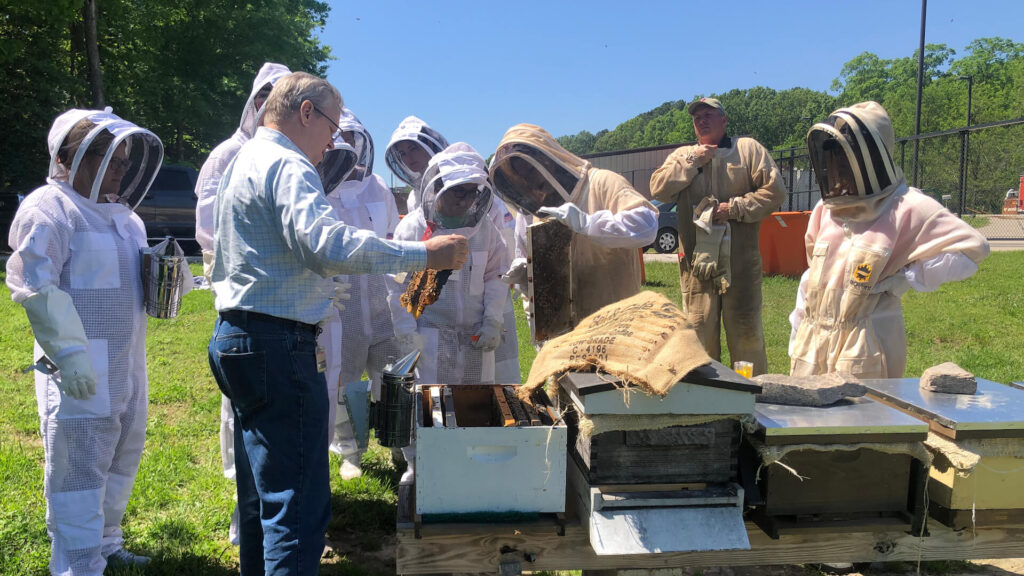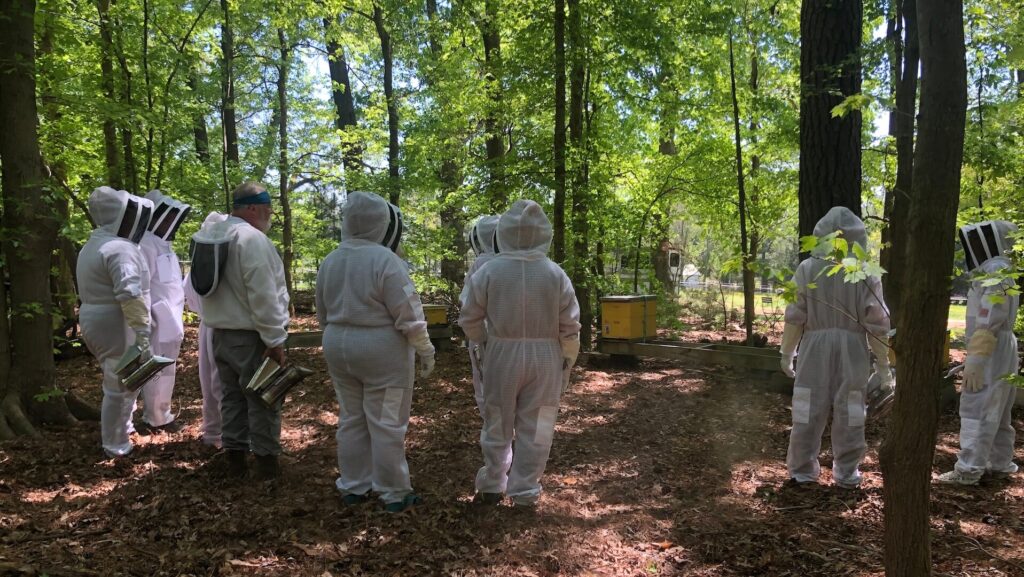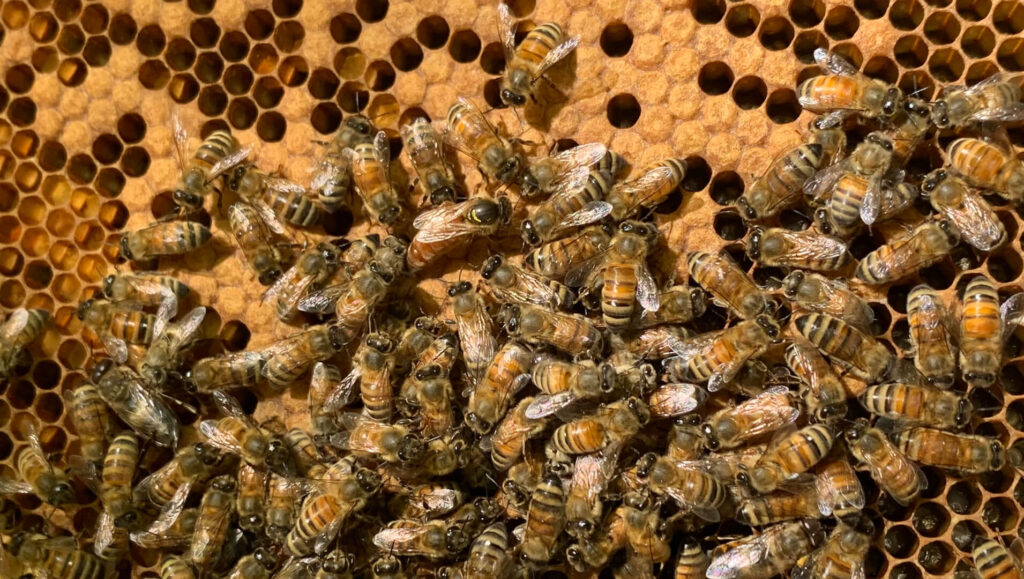NC State at Forefront of Emerging and Globally Urgent Field: Honeybee Medicine
“Offering our students a chance to learn about this important resource couldn't be more important right now,” says Dr. Greg Lewbart, who coordinated a new student selective to help train veterinarians in the field.

It’s “selective” time at the NC State College of Veterinary Medicine, a time when students get to choose fast-paced, intensely focused, one- or two-week classes from an array of offerings that now includes — for the first time! — apiary work or honey bee keeping.
In 2017, the FDA declared honey bees as food animals and began requiring veterinary oversight of antimicrobials used in treating them. Honeybees are essential to a third of the world’s food production and have been dying off across the globe in recent years because of poor nutrition due to land-use changes, pesticide exposure and introduced pests and diseases.
From April 2020 to April 2021, beekeepers across the United States lost 45.5% of their managed honeybee colonies, according to the Planet Bee Foundation.
“Offering our students a chance to learn about this important resource and the emerging field of honeybee medicine couldn’t be more important right now,” says Dr. Greg Lewbart, professor of Aquatic, Wildlife and Zoological Medicine, who is coordinating the selective.
Dr. Wayne Spoo, a veterinary toxicologist with the NC Department of Health and Human Services and a certified journeyman beekeeper, is doing the bulk of the lecturing, assisted by Tom Krupa, web manager at the NC State College of Veterinary Medicine and a beekeeper, and the owners of the Double B Apiary and Farm in Wake Forest, North Carolina.

NC State has been at the forefront of developing the framework for beekeepers and veterinarians to unite in the interest of bees and the world’s food population. In 2016, a group of five or so North Carolina veterinarians, mostly NC State faculty and graduates, started the Honey Bee Veterinarian Consortium, which offered a place for beekeepers to find veterinarians able to help them with the coming FDA rules on antimicrobials.
Since then, the consortium has grown to include more than 300 participants across the country and will have its annual symposium at the NC State College of Veterinary Medicine this fall.
“Despite beekeeping being an ancient practice, veterinarians have only recently become involved in apiculture,” says third-year DVM student Carrisa Amoriello, who is taking the selective this week. “Many veterinarians are not proficient in beekeeping practices and honey bee medicine partly because it is not something routinely taught in the veterinary curriculum. I’m still very new to the beekeeping world but am excited to see how the veterinary profession will evolve to fulfill the needs of this important industry.”
In January 2022, an American Veterinary Medicine Association news story had this to say: ‘Given their training in comparative medicine, veterinarians can diagnose and treat a wide range of animal diseases. But American and European foulbrood? Colony collapse disorder? Varroa mites? Most U.S. veterinary curricula don’t cover these major threats to honeybees. That’s beginning to change, however.”
NC State is proud to be a part of that change and to be offering its students a chance to learn about bees, says Lewbart, who was one of the founding members of the Honey Bee Veterinarian Consortium.
“This is the 26th year of selectives at the college, and I have been involved with many offerings over this time period,” Lewbart says. “I can’t remember a more positive experience, and it’s been a joy to watch the enthusiasm and engagement of the students with the instructors and thousands of small but important patients.”
The selective offerings at NC State range from equine anesthesia to global health management to feline oncology.
Students in the honeybee selective this week are learning, among other things, adult honeybee anatomy and physiology, bee sting therapy, hive inspection techniques and common diseases and pests among bees.
“I’m a lot less scared of honey bees now, at least while wearing my bee suit!” Amoriello says. “I also have a greater appreciation for them due to their enormous contributions to agriculture and how interesting they are to study and work with. Maybe I’ll have honey bees of my own one day!”
Honey-tasting also is on the schedule.




